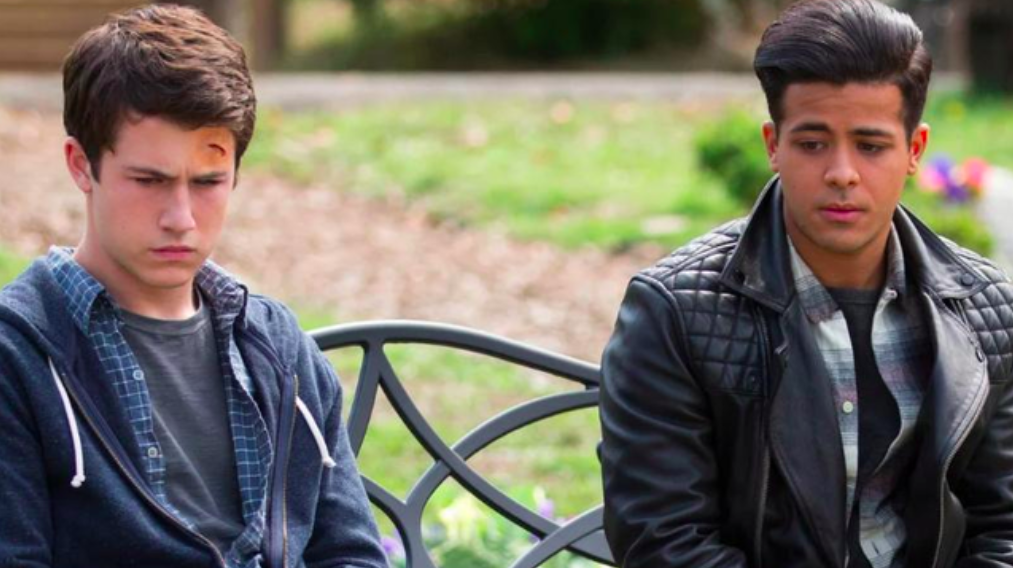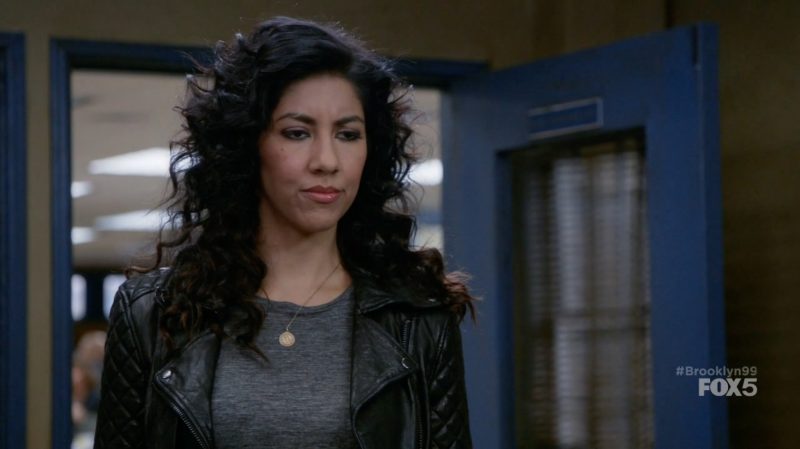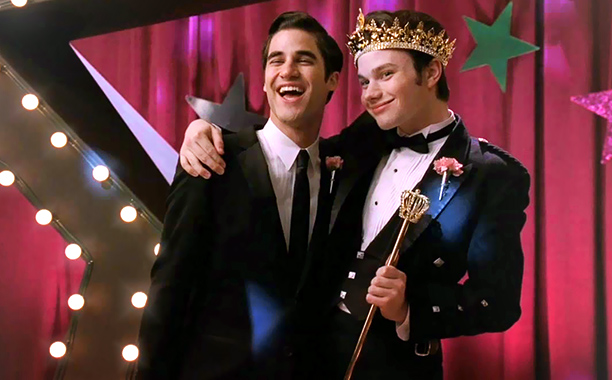
We spoke to LGBTQ+ people about how representation on Netflix is completely necessary
Where would we be without NHS poster boy and Sex Education legend Eric Effiong?
Everyone with more than one braincell can recognise the importance of LGBTQ+ characters in TV shows. Given that the majority of television up to the past five years was centred around white, straight, cis people – it’s only fair that everyone who is firmly Not That get to see people like them on TV for a chance. This seemed obvious. Then yesterday a Twitter user tweeted a meme which implied (I mean it wasn’t really implied. Look at the meme) that gay characters in Netflix series are “unnecessary”.
We might have thought we were past this, but the tweet has 130,000 likes. Luckily, Netflix clapped back, quote retweeting and saying “Sorry you have yet to realize that every gay person is very necessary” and that got double the reception of the original tweet.
This is because, and I almost can’t believe I’m saying this, gay characters are necessary. So necessary in fact that they often play a big part in people coming out or feeling more comfortable in their sexuality. When you’re too scared to talk to your family and friends, watching someone like you live (and love) on screen is often your only refuge. This is the reality for a lot on non-straight people, and here are there examples of Completely Necessary Netflix characters that helped them along the way:
Tony, 13 Reasons Why

“In 13 Reasons Why, Tony is sure of his sexuality and very open to talking about it. He’s both a devout catholic and proud gay man. It’s refreshing and empowering to watch LGBTQ+ characters like him. When I first saw the show, I had only just come out. I had so many concerns about how society would see me now that I identified as gay. Tony reminded me that I’m not alone and I have nothing to be ashamed of.”
Max, Cambridge
Santana, Glee

“So, Santana in Glee was the first representation of a gay character I had seen on TV. I think I was about 10 maybe. She was the bad bitch of the show, and I didn’t find myself attached to her until the moment all the girls united to sing ‘I Kissed a Girl’ in the auditorium. At the time, I don’t think I had any understanding of my sexuality, but there was this woman on this show that I absolutely loved who kind of created a safe space for me to at least relate to her. I didn’t come to terms with being bi until I was at least 16, but for a long time Santana was this secret companion that helped me understand that it was okay not to be straight.”
Bec, Lancaster
Patrick and David, Schitts Creek

‘Patrick and David from Schitts Creek have made me sob on multiple occasions. The only completely angst-free depiction of a same sex relationship I’ve seen. Their families are supportive, and they just have a happy, healthy relationship without drama. It’s portrayed like any other love story, they just happen to be gay. I think it just provided that extra bit of reassurance that you can have a ‘happy ever after’ love story. That gay relationships don’t have to be super sexualised or be there for comedic value (Modern Family, with the super stereotypical OTT characters), they can be proper rounded love stories. I think other shows like Glee were good for representation but Santana and Britt were never the ‘main event’, they were kind of the side plot, whereas this was the first time I’d seen this kind of story where it’s totally normalised and not made a big deal.”
Livi, King’s
Poussey, Orange is the New Black

“Poussey’s character always resonated with me. I understand so many of the torments she goes through in the show – they build her arcs on the base of her sexuality and lost love, and for the first few seasons she struggles with intense loneliness and her strict parents. Orange Is The New Black actually made this LGBTQ+ character completely human, and didn’t play off the idea of sexualising her as a lesbian character; but made her relatable to any queer fans watching the show.”
Gemma, Leicester
Rosa, Brooklyn 99

“I would say that Brooklyn 99 has the characters and storylines that resonate the most with me personally. It doesn’t just focus on a singular coming out moment which has always frustrated me when I do see that in shows and movies because it isn’t just a case of coming out once and then it’s over. It was also great that they covered Rosa coming out to different people and how she handled it differently depending on her relationship with the person.”
Emily, Southampton
Emily, Pretty Little Liars

“With Emily it was nice to see her sexuality just NOT be an issue. After her mum got over it, life was normal. Men weren’t pushy and weird when she said she wasn’t interested (except for that Maya’s cousin arc but I’ll forget that). She had great relationships with men that weren’t twisted and weird revolved around a desire to ‘turn’ her. Her sexuality was just…normal and that’s what was so important for me. It gives this sense of hope that, for those looking to come out of the closet, things can go on and everything will be okay.”
Eulalie, Coventry
Felix, Orphan Black

“Felix Dawkins is everything every young, queer kid wants to be, and then some. None of my friends watched Orphan Black in its prime, so my connection to Felix when I was a young gay of 15, who hadn’t even admitted that to himself yet, felt even more special. It was like I’d finally seen myself in another person who had made it to the other side of coming out, not just surviving, but thriving. Felix’s soft grunge makeup looks really were the blueprint, and his (fabulous) taste in silk dressing gowns, whilst also being a badass who dismantled a global network of human cloning, made me realise the way I dress or speak or walk doesn’t define me – it only makes me more beautiful to be around.”
Charlie, Liverpool
Kurt and Blaine, Glee

“Look it’s easy to shit on Glee for a number of reasons because it got a lot of things wrong with representation – there’s nothing wrong with acknowledging that. It doesn’t mean Kurt and Blaine’s relationship playing out over four seasons wasn’t important. For one, it was the first gay romance I’d watched with my parents in the room, and some of the storylines around Klaine (Krofsky’s suicide attempt, Kurt losing his virginity) was done really well, not to mention how much time was devoted to developing them. I think it would be unfair to understate the impact Blaine and Kurt had on young gay kids growing up.”
Tom, King’s
Danny and Karl, Black Mirror

“Striking Vipers was great because it comes at queer sex from an angle a lot of shows shy away from. Most of the time you can’t really chat to your straight mates about shagging other guys but Striking Vipers makes a really good point about sexuality being fluid (a concept a lot of the hets seem to struggle with) and you have to hand it to them for opening up a conversation like that. It’s a fluidity I wish more shows dared to try.”
Dan, Birmingham
The Fab Five, Queer Eye

“Queer Eye in my opinion is the show already for Queer people in terms of how important it is. I remember when I came out trying so hard to retain this masculine persona and watching Queer Eye helped me to overcome the wave of internalised homophobia, which was unhealthy for my mental health. It’s strange how the likes of watching somebody having a makeover can be so empowering for Queer people, but it really hones back to how important it is to take care of yourself. Particularly important when Queer people still face societal and political oppression from many people.”
Related stories recommended by this writer:
• Dead To Me season two drops on Netflix TOMORROW
• The first two seasons of KUWTK will be landing on Netflix next month
• Take this quiz to find out how addicted to Netflix you’ve really become in lockdown





















